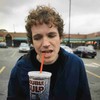UK shoppers in Calais taking advantage of the European single market and loading their van with cheap booze. Photo: Mike Abrahams / Alamy Stock Photo
The idea of a French customs official making you guess how many items of clothing are in your suitcase seems like a decent pitch for a game show: somewhere between Don’t Forget Your Toothbrush and Banzai. Unfortunately for Channel 4 producers, it is one that has already been copyrighted by reality itself.The French equivalent of Border Force are angry at not being given enough resources to deal with a 29th of March Brexit, so five French customs official unions have decided to perform a simulation of what No Deal will look like. On Tuesday, they began scything the lines at Gare Du Nord Eurostar terminal down to only one X-Ray machine, and began asking lots of redundant questions of passengers ("where you have been, what is in your bag, how much money do you have").Queuing for his Eurostar in Paris, Le Monde journalist Michaël Szadkowski reported that he had to "declare to the zealous customs officer the number of clothes in my bag". Another guy was asked, "How do you spell your name?" Szadowski has not yet revealed the exact number of clothes he had in the bag.Elsewhere, things were just as stroppy. In Calais and Dunkirk, lorries were reduced to a single lane, and all inspected (normally, they only randomly drop in on one or two). "This will be what it is like after Brexit," one official was quoted as saying. "Back to the 1970s."The reports coming back from this questionable series of war games is that these new 70s will mean queues of about an hour at the Eurostar terminal. It’s not immediately clear which side of the Brexit debate could claim victory on that basis: is there enough Blitz Spirit in the tank to stare at your phone for 60 minutes in Gare Du Nord?It’s more useful to compare their simulator to how it was in the real 70s. For starters, you didn’t need a visa, but your luggage would habitually be searched, mainly for contraband – this was before the booze cruise era, when limits on booze or fags were tightly policed – and all cars were searched on the ferry, making the average car journey about a quarter longer.You were also required to show an international driver’s licence (this part is definitely coming back), plus you’d need an insurance Green Card, the car’s original registration documents and a letter of permission to drive your vehicle if you weren’t the registered owner, plus a translation of your driving licence for countries like Italy.But far more painful than any French customs controls were the exit controls the British government imposed as you left Dover. Worried that the value of the pound would decline if too many people pulled their cash out of a failing economy, successive governments had capped the amount you could take on holiday at £50 per person per year – the equivalent of £700 in today’s money. Back then, in addition to being blue, British passports also had a special page for officials to list how much money you had left on your allowance.This created endless issues, and a big market for smuggling: Cilla Black once bought a villa in Spain by taking her last £1,000 payment out of the country baked inside a loaf of bread. Yes, people used to take loaves of bread on holiday – deal with it. Stuffing £10 notes in your socks became a rite of passage for holidaymakers heading out to Spain in the wicker-donkey era. Anything you wanted to spend beyond your cap would be taxed at 40 percent. By the mid-1970s, credit cards, used "for legitimate business expenses" took some of the heat out of the cap, but for ordinary folk it was a queasy era of being Europe’s poverty-struck country cousins.One traveller remembers how the currency controls played out in practice at an Austrian inn:
Advertisement
Advertisement
The reason that even a hard Brexit won’t be as bad as the 70s is as much a change of culture as anything legal. The old world seemed to delight in attaching counterfoils to everything, but as much as computers have rendered some admin practically unnecessary, a post-Thatcher society of consumers has made it socially impossible.Seventies Britain as viewed from today can seem as remote as the Ming Dynasty, but a generation raised in the shadow of the war were used to rationing, and to people telling them what to do. Try telling the EasyJet cohort that once the money is gone, well, that’s you done for 12 months – that’s a simulation we’d all like to see.@gavhaynes"The hotel had four dinner menus: Expensive à la carte for the rich Germans, two fixed price menus of good wholesome food for the locals and the 'English Menu' for the poor relations from that benighted country outside the Common Market. The menu was the same every night: One boiled sausage and one boiled potato, followed by half a tinned pineapple ring."
